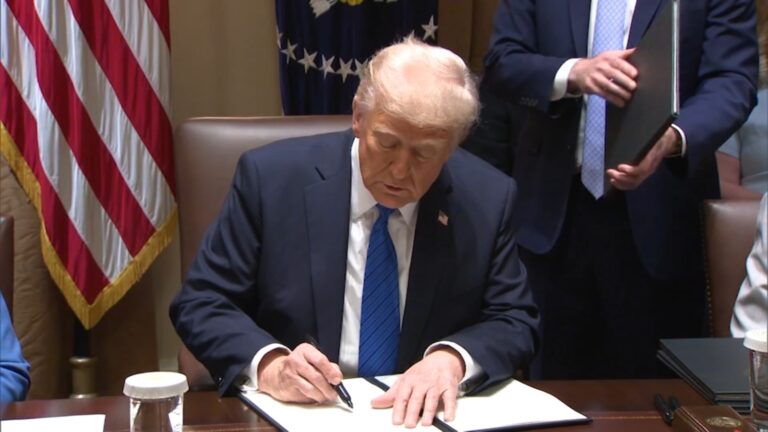San Francisco Law Firm Challenges Trump’s Executive Orders
SAN FRANCISCO (KGO) — A prominent law firm in San Francisco is standing up against recent executive actions taken by the Trump administration, which they view as attempts to intimidate legal representatives of individuals opposed to the president.
Background of Executive Actions
Several executive orders issued by the Trump administration have notably targeted law firms and individuals who are seen as political adversaries. These actions have had a significant impact on legal professionals, with at least five law firms now facing scrutiny regarding the continuation of their security clearances and their ability to access federal facilities.
Legal Implications
Matthew Coles, a professor at UC Law San Francisco, has commented on the situation, stating, “His reasons for doing this is, in every case that they have represented people he doesn’t like. They have taken a stance in cases he doesn’t like. The First Amendment gives people the right to disagree with the president and the right to use the legal system to express their opposition to the president.” He views these executive orders as intimidation tactics that violate fundamental First Amendment rights.
Responses from Law Firms
In response to these developments, some law firms are actively pursuing legal action against the administration. Allegations against the government include claims of discrimination against firms involved in criminal investigations related to the president. Coles believes this trend could discourage legal professionals from carrying out their duties.
Keker, Van Nest & Peters Law Firm’s Stance
Keker, Van Nest & Peters LLP is among the law firms resisting these measures. Partner Elliot Peters emphasizes their commitment to justice, stating, “We are at risk of being targeted in some way by the Trump administration. I don’t think there is any risk of us being intimidated. We have a long history in this firm of standing up for what is right, and we are not afraid to go to court.” Peters articulates concern over the administration’s approach, suggesting it could suggest a movement toward autocratic governance in the absence of checks from Congress.
Criticism of Outsourcing Legal Work
Critics of current government practices, such as Julie Hamill from the California Justice Center, are questioning the reliance on private law firms for federal legal matters. Hamill states, “Why is the federal government paying for private law firms to do any sort of work on behalf of the federal government? We have plenty of federal employees. We are paying for them to do the work already.” She argues that this outsourcing may enable an undue influence where private firms are utilized to pursue political agendas against citizens.
Conclusion
The ongoing legal battle highlights significant tensions between legal independence and political directives, raising essential questions about the role of government and the integrity of the legal system in safeguarding basic constitutional rights.



